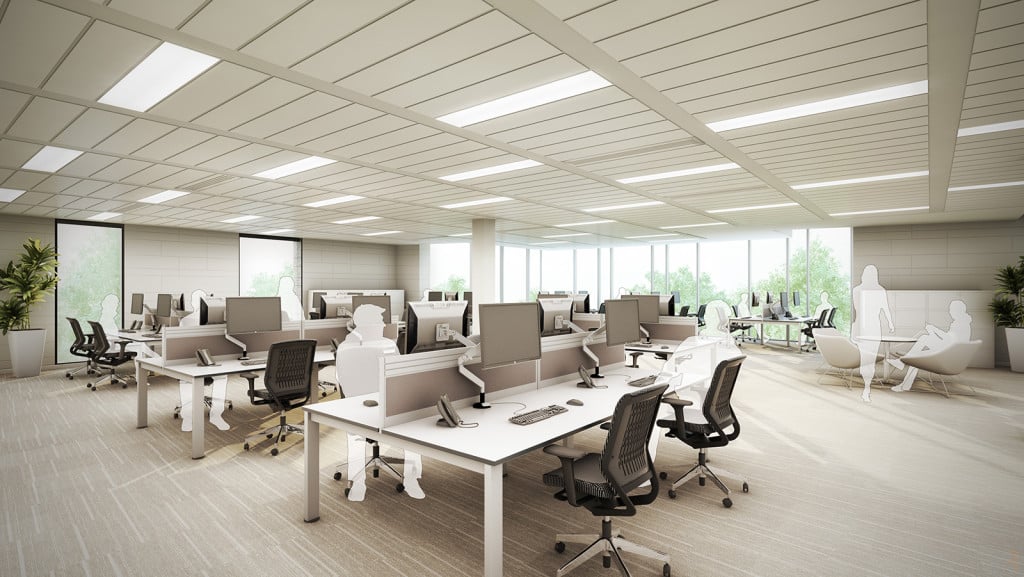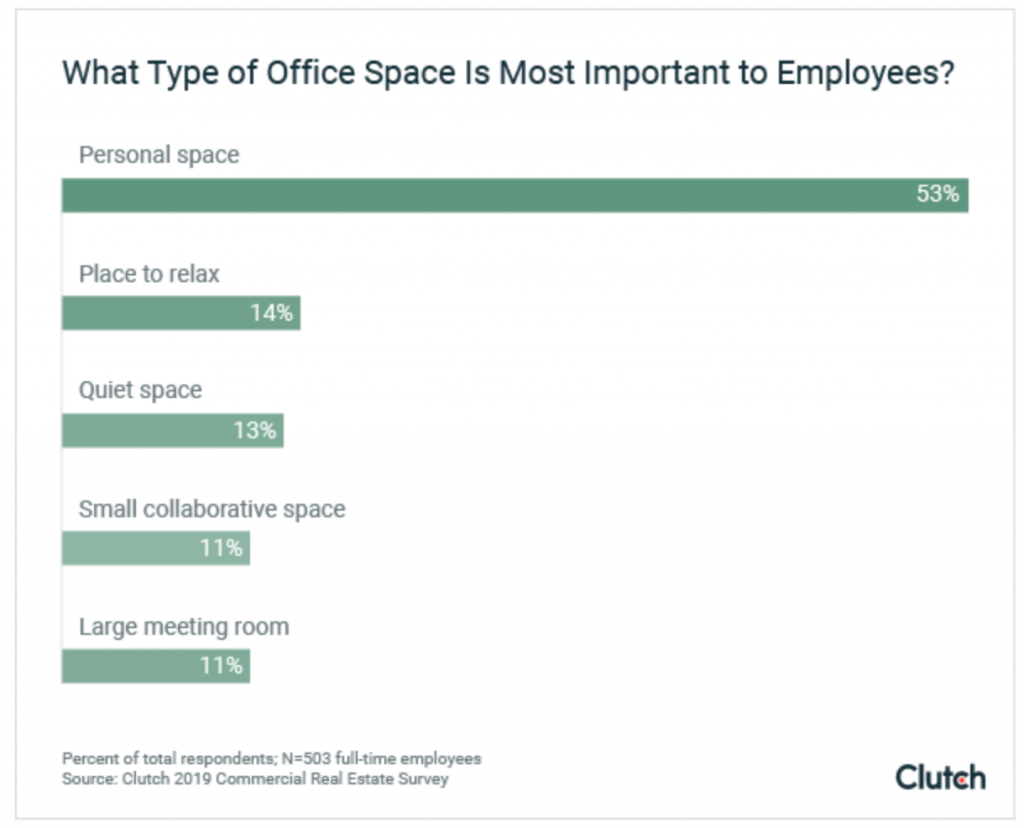People spend an increasing portion of their lives at work and seek greater comfort and options in the workplace.
According to a recent survey from Clutch, 52% of employees prefer private offices at work. By contrast, only 28% prefer open-floor plans and 20% want cubicle offices.

The survey included 503 full-time employees across the U.S. who complete at least the majority of their work for their job in a private office that their company leases.
Half of the respondents (50%) work in an urban area, 38% work in a suburban area and 11% work in a rural area.
Employees largely reject open-floor plans in offices, despite companies embracing this design trend to save money and space.
Meanwhile, a strong labor market is driving businesses to compete for top talent.
The survey indicates that offices with personal spaces, communal areas and unique features are a vital asset to businesses looking to attract and retain top talent.
Commercial real estate brokers can use this article to learn employees’ preference for office spaces and which office types are in demand.
Competition for employees is mirrored by competition for offices to attract those employees.
According to Clutch, more than half of employees (53%) say that their own space in an office is most important to them.

Private spaces are vital in helping employees feel comfortable and valued.
The right office can directly impact the bottom line, as it represents the company culture and helps companies to stand out to potential hires.
Offices with private spaces help companies attract discerning employees, as do unique features and amenities. In fact, many developers and landlords are reverse engineering their offices to meet the demand for dynamic offices.
“Even the smaller, class-B buildings are doing renovations, adding features, and reworking lobbies so you can sit down and work near the entryway,” said Todd Burns, Head of projects and development at JLL, said in a recent Curbed article.
With employee preferences top of mind, brokers can expect increased demand for offices with private spaces, outstanding design, and unique amenities.
Employees value their time in the office, and businesses must make coming to work enjoyable.
According to Clutch, only 17% of employees want to work fully remotely, which indicates the importance of providing a desirable office space.
Communal areas are prized because employees enjoy the social aspect of work. Employees must accomplish a range of tasks at work, so offices with different areas such as meeting rooms and small collaborative spaces are also important.
A varied office layout helps employees stay motivated, productive and happy at the office.
What constitutes a top-tier work environment has changed in recent years, though.
The rise of coworking, remote work, and the tech sector’s playful approach to office spaces have shifted employees’ expectations from the image of a traditional office to a dynamic community space.
Commercial brokers can offer renovated and improve their amenities offerings to create value and allure for potential lessees.
From roof decks to smart windows, unique features appeal to companies that need their office environment to attract and retain talent. Plug-and-play office spaces that let businesses customize their office as needed are also increasing sought-after.
For best results, commercial real estate brokers should offer spaces that help companies create a unique work experience for employees.
Commercial real estate brokers can expect demand to increase for offices without open-floor plans but with a mix of private and communal workspaces.
Unique features and amenities are increasingly appealing to companies that want to create a remarkable work culture in order to secure top talent.

Kristen Herhold leads commercial real estate research for Clutch, a business-to-business platform designed to help companies research and find business services and solutions providers.